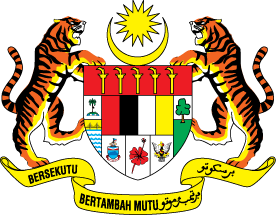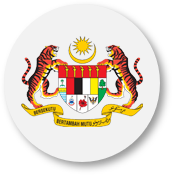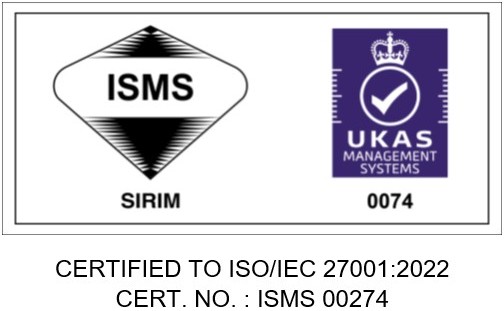-
Malaysia will be participating in the TPP Ministerial Meeting from 28-31 July 2015 in Hawaii, USA. This meeting is to finalise negotiations that began five years ago. There will be no signing of any Agreement in Hawaii. I repeat: Signing of the TPPA will not happen in Hawaii. Like Malaysia, each TPPA member will need to go through its own domestic process before a final decision to sign and ratify the TPPA is made.
-
I wish to emphasise, right at the outset, that as the Minister in charge of the TPPA negotiations for Malaysia, it is my responsibility to ensure that our Constitution, sovereignty and core policies of the nation – including the interests of the Bumiputera community – are safeguarded and upheld. Our objective at this meeting is to ensure that Malaysia’s interests and concerns are addressed in the final outcome.
The Context
-
We are an open economy highly dependent on international trade, foreign capital, technology and tourism. Malaysia's ranking as one of the top 25 trading nations in the world is testament to our trading prowess, given our size. This mercantile philosophy is also very much in line with our history and heritage, dating from the times of Melaka's status as the entrepôt in the region in the 15th and 16th centuries. Today, this is reflected in the fact that ports such as Port Klang, Penang and port of Tanjung Pelepas have helped make Selangor, Penang and Johor relatively more prosperous than other parts of Malaysia in large part because of international trade and foreign and domestic investments.
-
As such, Malaysia is open to free trade agreements (FTAs). Although our overarching strategy is to negotiate market liberalisation in the multilateral context through the World Trade Organization (WTO), the negotiations at the WTO are progressing at a snail's pace. Not to be left behind in the pursuit of better market access for our goods and services, Malaysia has already concluded 13 FTAs, 12 of which are being implemented. The latest is with Turkey and will come into force on 1 August 2015.
-
The TPPA also provides Malaysia with market access for four trading partners that Malaysia has no FTAs with, namely, the US, Canada, Mexico and Peru. For these markets, we will see tariff elimination for between 2,000 and about 4,000 tariff lines of products of interest to Malaysia, including, electrical & electronics products, timber and timber products; textiles; plastic and plastic products; and palm oil and palm oil related products.
The TPPA
-
Unlike Malaysia’s other FTAs that focus on tariff reduction or elimination, services liberalisation, rules of origin and technical barriers to trade in goods and services, the Trans-Pacific Partnership Agreement (TPPA) is a comprehensive FTA covering wider areas such as government procurement, labour, environment and state-owned enterprises. Some of these issues are being discussed for the first time in any FTA, but going forward, it is the view of many that these new issues will be an integral part of future trade agreements. For example, in the Regional Comprehensive Economic Partnership (RCEP), some countries are already injecting these elements into the discussions. These areas, while posing some challenges, also promise benefits to Malaysia.
-
It is with a view towards reaping the benefits from the TPPA that the Government decided to enter the negotiations five years ago. The decision was not an arbitrary one. It was arrived at only after a series of consultations and engagements with relevant stakeholders. The mandate to negotiate came after careful consideration by the Cabinet, taking into account views from all relevant parties.
-
We recognise that there are costs as well. But in our assessment, there will be economic benefits for Malaysia from greater market access to the TPPA countries; deeper integration in the regional and global supply chains for our SMEs; increased quality investments leading to more jobs and higher wages; as well as good governance through adoption of international standards and best practices. The TPPA will also provide wider choices for consumers and cheaper inputs for our industries.
The Team
-
The Malaysian negotiating team that I head comprises experts from more than 20 ministries and agencies. For example, Bank Negara Malaysia handles the financial services negotiations; the Ministry of Finance negotiates the Government Procurement chapter; the Ministry of Human Resources negotiates the Labour Chapter; The Ministry of Natural Resources and Environment, the Environment chapter; the Ministry of Agriculture, the Sanitary and Phytosanitary chapter; the Ministry of Domestic Trade, Consumerism and Cooperatives, the chapters on Competition Policy, and Intellectual Property Rights. The team is assisted by legal officials from the Attorney General’s Chambers. Positions taken by our officials on issues negotiated in the TPP are also based on feedback received from various stakeholders.
-
In the Government’s effort to enhance public understanding of the TPPA, we have held more than 100 engagements with various stakeholders over the last few years. These include parliamentarians, industry groups, academicians, students, cleared advisors and non-governmental organisations (NGOs) as well as individuals. The views of these stakeholders have provided additional guidance to our officials in the negotiations.
-
About 18 months ago, the Government also took the unprecedented step of establishing a bipartisan Parliamentary Caucus on TPPA comprising 6 MPs from Barisan Nasional and 5 MPs from the opposition. These lawmakers have been engaged in discussions on the TPPA and their feedback has been important in formulating Malaysia’s position in the negotiations. I have also personally met and discussed the TPPA with many prominent critics, including one-on-one engagements with several of them. I must stress that I am very grateful to all of them for sharing their views with me, including their criticisms on the TPPA. These have helped my team and I in strengthening our negotiating position.
The Concerns
a. Sovereignty
-
One of the main concerns over the TPPA is the inclusion of the Investor-State Dispute Settlement (ISDS) mechanism. The criticism is that this would impinge on Malaysia's sovereignty and limit the policy space of Government to regulate, while providing the right to investors to sue governments.
-
Let me state very clearly that the TPPA does NOT prevent Governments from pursuing and regulating legitimate public policy objectives, especially in areas such as national security, public health, environment and welfare. There are a number of safeguards being negotiated to address key concerns, including the avoidance of frivolous claims and challenges by investors. In addition, we are committed to ensuring that our core national policies, including the interests of the Bumiputera community, will be safeguarded. As mandated by the Cabinet, our team has proposed clauses to that effect to be included in the TPPA's final document.
-
On the issue of ISDS, it should be noted that while some countries have submitted proposals and templates for this matter, Malaysia has articulated our strong position on the primacy of national sovereignty and the need for safeguards and due process before invoking this provision. Our stance is supported by a number of Parties in the negotiations.
-
It is important to note that the ISDS is not new for Malaysia. We already have 74 Bilateral Investment Treaties (BITs) and eight FTAs which contain ISDS provisions. We must remember that we have had foreign MNCs (including those from the US) in Malaysia since the 1970s, and none have found reason to use the ISDS facility. While the scope of the ISDS in the TPP is wider, there are clear provisions that reaffirm the rights of Governments to regulate and prevent frivolous claims and challenges.
-
Let's bear in mind that the ISDS cuts both ways. Malaysian investors abroad will also have the same protection mechanism in the TPPA countries they venture into. It is important to note that there are a large number of Malaysian companies investing abroad today. In fact, as at the end of last year, the stock of Malaysian investments overseas has exceeded foreign direct investments into Malaysia. Also, some of our companies have approached us to find out if we have BITs with the countries that they are planning to invest in.
-
There have also been claims or concerns that the TPPA will not allow countries to impose capital flow measures. Malaysia and other like-minded countries have ensured that there will be sufficient policy space within the TPPA to mitigate the destabilizing effects of capital flows to preserve financial and macroeconomic stability.
b. State Owned Enterprises and Bumiputera Agenda
-
There is a concern that the TPPA will undermine Malaysia’s development model specifically the Bumiputera Agenda and our right to manage our State Owned Enterprises (SOEs). Malaysia is seeking flexibilities for our SOEs (for example, Khazanah and PETRONAS) to enable them to continue with their developmental roles, for example, the vendor development programmes to assist Bumiputera and SMEs.
-
On Government Procurement, Malaysia is safeguarding Bumiputera preferences by ensuring that the current Bumiputera and SME preferences will be maintained.
d. Medicines
-
Another major concern is the claim that the price of medicines will rise astronomically as a result of stronger patent protection. In reality, the patent-protection clauses in the TPPA are not all that different from Malaysia's current regulations on this subject. Our laws provide patent protection for 20 years. In the TPP, countries will only be required to extend patent protection if there is unreasonable delay within the regulatory approval process. However, such extension can be avoided through efficient implementation. We strongly believe our current approval process is efficient and would not constitute an unjustifiable delay.
-
One other point: We need to realise that prices of drugs are not solely determined by patent protection. A number of other factors are involved as well, including currency fluctuations, the cost of research and development, marketing budgets and current procurement practices.
-
The Government is fully mindful of the need to ensure that our people will have access to affordable medicines and health care. The Government has taken a stand that would balance the access to drugs with incentives for new drugs to be produced and brought into the market.
-
All TPPA countries also recognize that there may be certain circumstances where greater flexibility is required, such as in the case of public health emergencies. Parties to the TPPA have already affirmed their shared commitment to the Doha Declaration on Trade-Related Aspects of Intellectual Property Rights (TRIPS) and Public Health, which helps the developing countries to address public health problems.
e. Rice
-
There have also been concerns that the livelihoods of our padi farmers will be harmed by an increase in imports of rice from the United States under the TPPA. These fears are unfounded. The present minimal level of imports of rice from the United States will remain. In 2014, imports from the United States comprised a mere 0.05 per cent of total rice imports. It must be pointed out that rice imported from the United States currently costs anywhere between RM 3.9 and RM 9 a kilogram, compared to RM 1.65 to RM 2.60 per kilogram for local rice.
-
Also, Bernas will continue as the nation's main supplier and distributor of rice, and the Government will continue to provide support, as it has been doing. The present policy on padi and rice will be retained.
f. Islam
-
Contrary to some allegations, I can assure that nothing in the TPPA will threaten the position of Islam as the official religion of Malaysia. The Government will never allow any FTA to undermine this constitutional provision.
-
Let me give one example. There have been claims that as a result of the TPPA, Malaysia’s ability to continue to impose halal requirements will be impaired. In actual fact, our negotiators have successfully argued that halal is not a barrier to trade. This has been acknowledged by the respective parties and thus excluded from the TPPA.
g. Jobs and FDI
-
There are some who claim that the TPPA will lead to higher unemployment levels for Malaysians. Let me clarify. The TPPA does not provide for the "import" of foreign labour. Hence, the issue of Malaysian citizens having to compete with foreign workers on a so-called "level playing field" does not arise. The TPPA actually contains several clauses promoting the welfare of workers, including clauses relating to minimum wage levels, which Malaysia has already implemented. The entry of foreign workers, including professionals, will continue to be governed by Malaysia's own laws and regulations.
-
As I mentioned earlier, FTAs have helped create jobs for qualified Malaysians. This is in large part due to the improved investor confidence. It is now more important than ever that Malaysia continue to attract Foreign Direct Investments, given that Malaysia is now a net exporter of capital – largely because of the investments and expansion of our corporations overseas. According to Bank Negara Malaysia (BNM), in the last quarter of 2014, our stock of investments abroad totaled RM 474.2 billion compared with the stock of FDIs in Malaysia (RM 467.5 billion).
-
The Government is committed to ensuring that FDI levels are maintained, if not improved, despite the uncertainties in the global economy. In fact, we have shifted the focus in attracting foreign investment to ensure we bring in investments that are high-value, technologically advanced and can provide the commensurate monetary compensation for Malaysians in keeping with our goal of achieving high-income-economy status by 2020.
-
In 2014 alone, companies from across the world, including the United States, Australia, Europe and Northeast Asia, have either set up shop in Malaysia or expanded their existing operations in Malaysia. Of the 773 manufacturing projects which started production in 2014, 34.7% were foreign owned. These created 35,130 jobs, of which 25% or 8,700 were jobs at executive level requiring tertiary education.
-
Some of the MNCs in Malaysia have strong linkages to our SMEs resulting in job creation and business opportunities, in the software, packaging and display solutions and design and manufacturing of machine parts sector.
h. Secrecy
-
A common complaint is that the TPPA is being negotiated "secretly." It needs to be clarified in international negotiations it is only the negotiating text which is not made public. All the issues being negotiated have been openly discussed in all our engagements with various stakeholders.
-
It is not the intention of the Government to keep the negotiating text a secret. In the event that an agreement is reached, we will present the document to Parliament for debate and the Malaysian public before we sign on. The two cost-and-benefit analyses on the TPPA commissioned by the Government will also be completed by mid-August 2015, and this will provide some guidance to Parliament and the Cabinet in considering the TPPA document.
i. US "Dominance"
-
Some parties have argued that the TPPA is all about US dominance and only benefits US multinational corporations. We need to bear in mind that there are already US companies based in Malaysia. As at 2014, there are more than 700 US-based manufacturing companies (including a number of Fortune 500 companies) here. This is in addition to 81 MSC status companies. These companies have investments in excess of RM70 billion and have created over 200,900 jobs. Many of these companies have been here for several decades, contributing to capital formation, technology and job creation as well as back-linkages to the global economy, which provide business opportunities for Malaysian companies, including SMEs.
-
More important to note, however, is that this negotiation is not about the US alone. Apart from Malaysia, there are 11 other countries that are part of the TPPA, including Japan, Singapore and Australia – all of which are among our major trading partners. We need to be aware that in the negotiations, decisions are made collectively and not solely by the US.
-
There are concerns that by participating in the TPPA, we are party to an attempt to sideline China. We need to be aware that Malaysia already has a preferential trading arrangement with China through the ASEAN-China FTA. China is already our largest trading partner and will remain so in the foreseeable future. No country in the world can curb China’s role as a rising economic power.
j. Can Malaysian companies penetrate the US market?
-
Some have argued that Malaysian companies cannot access the huge market of the USA. This is really underestimating the capability and capacity of our companies. I personally know of a number of home-grown companies that have not only managed to access the US market but have also carved out a sizeable market share there. Having said that, I must acknowledge that there may be challenges for some companies. The Malaysian Government is committed to working with our business community in penetrating international markets, including the US.
k. What if we are not part of the TPP?
-
We should be aware, too, that there would be costs for us in not joining the TPPA, especially if our other major trading partners are members of the agreement. Investors may choose to locate in the TPP partner countries to take advantage of the preferential market access, as well as the transparent and predictable environment facilitated by this Agreement. Our Malaysian corporations may decide that the TPPA member nations provide a more conducive climate for business than Malaysia.
-
Some may argue that Malaysia can always join the TPPA at a later stage, so why the rush now? Late entry would mean that there will be a higher price to pay. We would not able to shape the rules of the agreement and enjoy the needed flexibilities such as longer transition periods and carve-outs to address our concerns. We will also lose out to our competitors who will be part of the TPPA and enjoy preferential access to the TPP markets.
Conclusion
-
The TPPA negotiations are nearing conclusion. At this stage, countries need to make hard decisions. As in all negotiations, there are concessions that need to be made. But the Government has taken a firm stand in the TPPA: our Constitution, sovereignty, and core policies such as the Bumiputera agenda will be safeguarded.
-
Our negotiators have worked very hard to ensure that our participation in the TPPA advances our national interest. They have successfully managed to include in the draft clauses that protect our sovereignty and national policies regarding the Bumiputera agenda, government procurement and state-owned enterprises.
-
Let me be very clear: No one is forcing us to sign the agreement, but as a country that has always been a beneficiary of open trade we need to approach this with a clear and open attitude. In addition to greater market liberalisation and competitiveness, the TPPA also has elements such as adhering to international best practices, promoting transparency and good governance, all of which are in the best interest of Malaysia. These principles are also in line with our aspirations of becoming a developed nation by 2020.
-
In the final analysis, we must recognise that there are costs involved in any trade negotiation. It would be premature of us to decide not to participate when the negotiations are on-going. When the TPPA negotiations are completed we will leave it to the people of Malaysia to decide whether the benefits exceed the costs.
-
In the event that an agreement is reached, the text of the Agreement will be available for countries to submit to their respective Parliaments. For Malaysia, we will present the agreement to Parliament for debate together with the two cost-and-benefit analyses. A decision to sign or otherwise will be taken after the debate in Parliament.
-
I urge all Malaysians to keep an open mind on the TPPA while negotiations are on-going. We appreciate your insights and take cognisance of your concerns. In fact, as I mentioned earlier, the feedback from all parties has helped shape our negotiating stance. Ultimately, the final document will be presented to the Cabinet, Parliament and the Malaysian public. It will be a collective Malaysian decision whether or not Malaysia becomes a Party to the TPPA.
Last Updated 2015-07-29 15:19:37 by Azuna Hasbullah atau Abd Rahman













 Home
Home






























